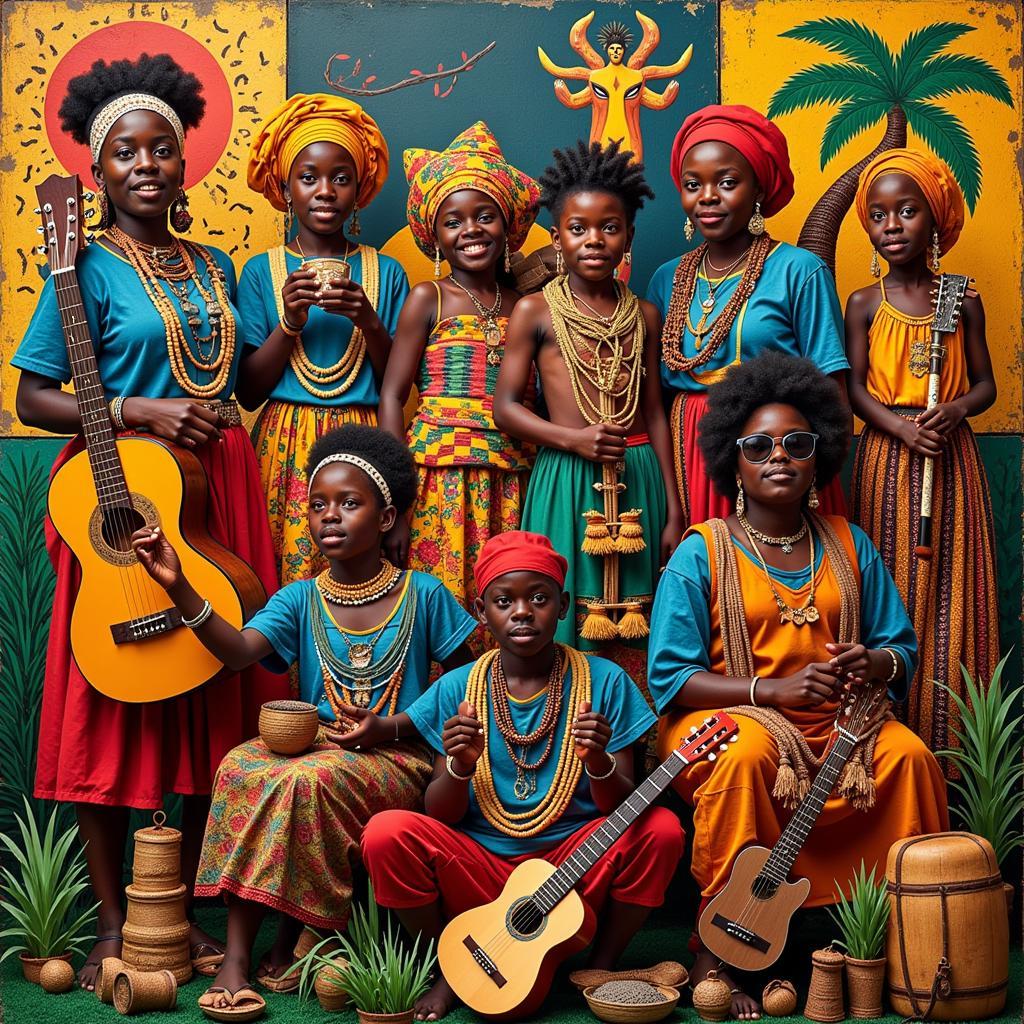African Countries and Currency: A Comprehensive Guide
African Countries And Currency are a fascinating reflection of the continent’s diverse history, cultures, and economies. From the bustling markets of Marrakech to the serene landscapes of the Serengeti, each nation boasts a unique monetary system and story to tell. This guide will delve into the currencies of Africa, exploring their origins, evolution, and influence on the continent’s financial landscape. Learn about the different denominations, exchange rates, and economic factors impacting each currency. Discover the interconnectedness of African economies and the role of regional and international trade.
You might be surprised to learn how many different currencies are used across the 54 recognized African countries. Some are pegged to major global currencies, while others fluctuate independently. This intricate web of monetary systems reflects the complex economic realities of the continent. Let’s take a deeper dive into the intricacies of African currencies, examining their impact on daily life, trade, and development. See the list of African countries capital and currency.
Understanding the Diversity of African Currencies
Africa’s currencies tell tales of colonial legacies, post-independence struggles, and ongoing economic development. The names, symbols, and even the designs on the banknotes often carry deep cultural and historical significance. For instance, the South African Rand features images of the “Big Five” animals, symbolizing the country’s rich biodiversity. Similarly, the Ghanaian Cedi’s name derives from a local word for cowrie shells, once used as currency. These details offer a glimpse into the rich tapestry of African heritage. Understanding these nuances provides valuable context for understanding the financial landscape of individual nations and the continent as a whole.
The Influence of Colonialism on African Currencies
Many African countries inherited their monetary systems from their former colonial powers. This historical influence is visible in the names and structures of several currencies. For example, the West African CFA Franc, used by eight West African countries, is pegged to the Euro, reflecting the region’s historical ties to France. This link to former colonial currencies has both advantages and disadvantages, impacting economic stability and trade relations. Understanding this historical context is crucial for comprehending the present-day dynamics of African currencies.
Economic Factors Affecting African Currencies
Various economic factors influence the value and stability of African currencies. Commodity prices, inflation rates, and political stability play a significant role. For example, countries heavily reliant on oil exports, like Nigeria and Angola, often see their currencies fluctuate with global oil prices. Similarly, political instability can lead to currency devaluation and economic uncertainty. These factors highlight the interconnectedness of African economies with global markets.
Regional Economic Integration and Currency Unions
Several African countries have formed regional economic blocs and currency unions to promote trade and economic cooperation. The East African Community (EAC) and the Economic Community of West African States (ECOWAS) are prime examples. These organizations aim to harmonize monetary policies and facilitate cross-border trade, fostering greater economic integration within their respective regions. These initiatives are crucial steps towards strengthening African economies and reducing reliance on external factors. Explore more on African countries and their capitals and currency.
What are the most traded African currencies?
The most traded African currencies are typically those of the largest economies, such as the South African Rand, the Nigerian Naira, and the Moroccan Dirham.
How do exchange rates affect African economies?
Fluctuating exchange rates can significantly impact import and export prices, affecting trade balances and economic growth. For instance, a weaker currency can make exports more competitive but can also increase the cost of imported goods. Check out the list on African countries capital and currency pdf.
What is the future of African currencies?
The future of African currencies is likely to involve greater regional integration and potentially the emergence of new currency unions. This could lead to increased economic stability and facilitate intra-African trade. If you’re interested in testing your knowledge, take our African countries capital and currency quiz.
Dr. Anika Nkosi, a renowned economist specializing in African markets, notes: “The diversity of African currencies reflects the continent’s unique economic landscape. Understanding these nuances is crucial for navigating the complexities of trade and investment in Africa.” Professor Kwame Asante, an expert in African monetary policy, adds: “Regional economic integration and currency unions offer significant opportunities for strengthening African economies and fostering sustainable growth.”
In conclusion, African countries and currency represent a complex and dynamic landscape, shaped by history, culture, and economic forces. Understanding the various currencies, their origins, and the factors influencing their value is crucial for anyone interested in engaging with the continent’s vibrant and evolving financial landscape. Exploring African countries capitals currency and language can offer deeper insights.
FAQ
- What is the most widely used currency in Africa?
- How many countries in Africa use the CFA Franc?
- Which African currencies are pegged to other currencies?
- What are the challenges faced by African currencies?
- How does currency fluctuation affect trade in Africa?
- Are there any plans for a single African currency?
- Where can I find reliable information on African exchange rates?
Need more assistance with information on African Countries and Currency? Contact us 24/7: Phone: +255768904061, Email: kaka.mag@gmail.com, or visit our office in Mbarali DC Mawindi, Kangaga, Tanzania.



